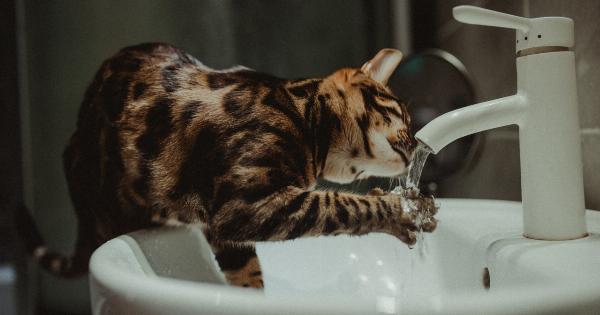Water is one of the most essential elements necessary for life. Humans require water regularly for cleaning, cooking, and drinking. But do you know what’s in your drinking water?.
Most people assume that the water that comes out of their tap is safe to drink. But in reality, there are several contaminants in our tap water. These contaminants can include heavy metals, chemicals, and other harmful substances.
The Importance of Clean Drinking Water
Drinking water is critical to our health, and it’s not something that we should take for granted. The water that we drink should be clean and free from contaminants that could harm us.
Clean drinking water is essential for many reasons, such as keeping our bodies hydrated, aiding in digestion, and keeping our skin, hair, and nails healthy.
However, if the water that we’re drinking contains contaminants such as lead, arsenic, or pesticides, it can have the opposite effect on our health.
These toxins can cause illnesses, such as cancers, neurological disorders, and developmental issues. Children and pregnant women are particularly vulnerable to the harmful effects of contaminated water.
The Most Common Contaminants in Drinking Water
There are several types of contaminants that can be found in drinking water. Here are some of the most common ones:.
1. Lead
Lead is a heavy metal that can be found in tap water due to old lead pipes, lead solder, or leaded brass faucets. Exposure to lead can lead to various health disorders like developmental problems, cardiovascular diseases, and more.
So, it is important to test your water for the presence of lead.
2. Arsenic
Arsenic is a toxic element that can exist in groundwater. Long-term exposure to arsenic can lead to various health issues such as skin diseases, cancers, cardiovascular diseases, and more.
The only way to protect yourself from arsenic is by filtering your water.
3. Chlorine
Chlorine is a chemical widely used by water suppliers to disinfect water. While it’s effective in killing harmful bacteria, it could have negative effects on our health.
Drinking excessive amounts of chlorine can leave our immune system vulnerable and lead to nose and throat irritation.
4. Pesticides
Tap water can be contaminated by pesticides that are used in farming practices. Research has shown that long-term exposure to pesticides in drinking water can lead to various health effects, including cancer and reproductive problems.
5. Fluoride
Fluoride is a mineral that is added to tap water to prevent tooth decay. However, excessive levels of fluoride in the water can lead to fluorosis, a condition that can cause white spots, discoloration, and even tooth decay.
Ways to Ensure Safe Drinking Water
There are several ways to ensure that your drinking water is safe to consume. Here are some of them:.
1. Test Your Water
The best way to know what’s in your drinking water is to have it tested by a certified laboratory. You can buy home water testing kits or rely on professional testing services.
Most water testing services will be able to detect contaminants such as lead, arsenic, and pesticides in your water.
2. Install a Water Filter
Water filters can help remove the harmful contaminants in your tap water. There are several types of water filters available in the market, such as activated carbon filters, reverse osmosis systems, or distillation units.
You can choose the best one depending on your specific needs and budget.
3. Bottled Water
While bottled water is convenient, it can be expensive and has an environmental impact. It is also not always the safest choice as the water source may not be assured.
Check the label on bottled water packaging to see if it has been treated by the reverse osmosis process, which removes most of the harmful contaminants.
The Bottom Line
Drinking clean and safe water is essential for our overall health and wellbeing. Knowing what’s in your drinking water is the first step in protecting yourself from harmful contaminants.
While it’s important to trust water authorities to ensure safe drinking water for the public, it’s also important to take precautions to protect yourself and your family.
Invest in a water filter or rely on professional testing services to ensure that your tap water is free from harmful contaminants.



























